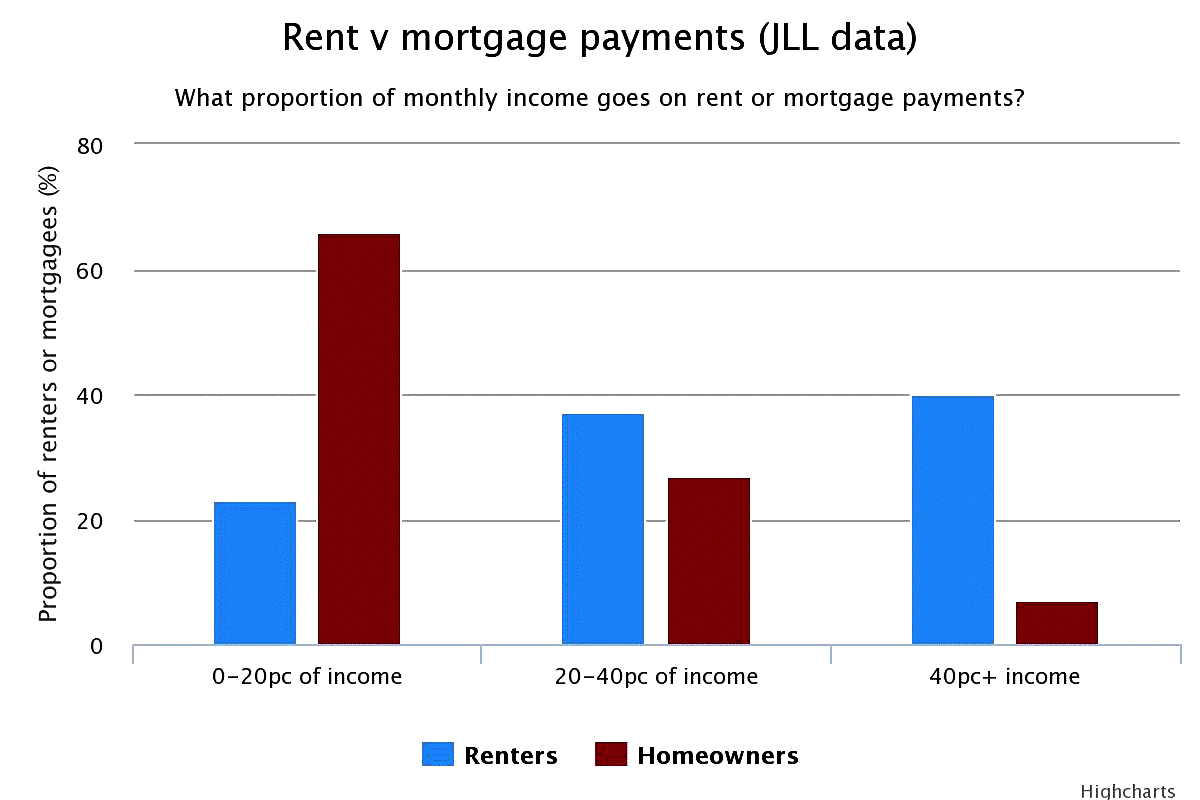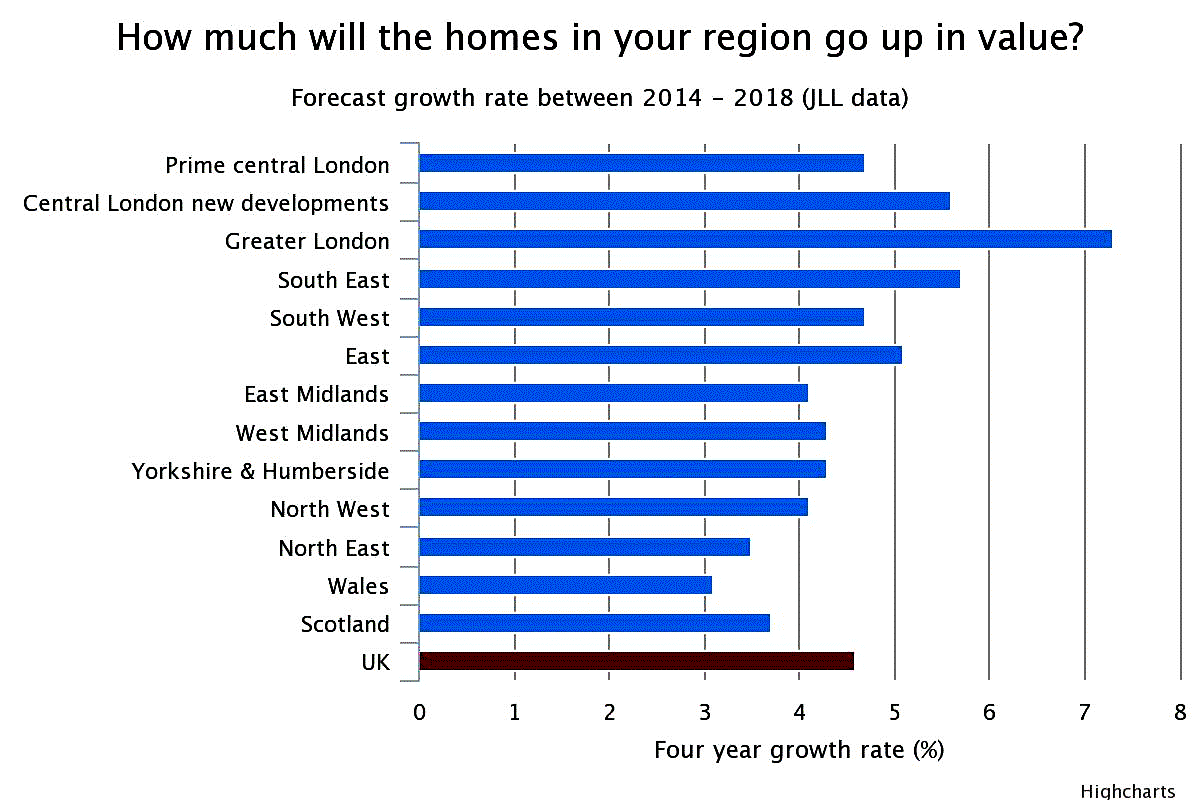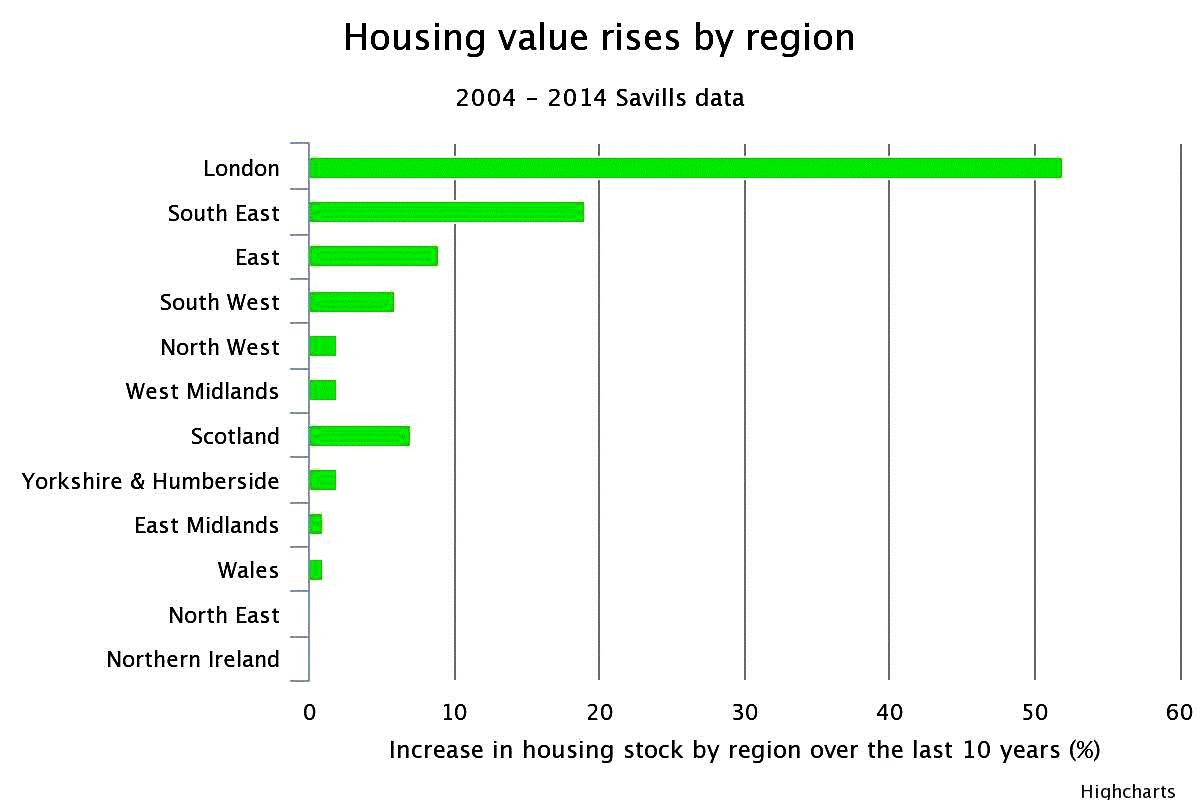George Osborne’s latest budget continued the trend of all his other budgets: introduce new measures that will further inflate house prices. This time it was "help to buy" ISA’s.
George is on a roll, and it's not clear whether he realises where this price-hiking frenzy might end.
During 2013 housing prices in London rose by around £40,000 for an average flat or house that was sold compared to the previous year. This brought the cost of a typical London home sold on the market up to just above £475,000. This rate of increase continued through 2014.
By 2015 average London prices were over £500,000.
Fewer and fewer people are able to get a mortgage. In the UK stricter tests have been introduced to try to prevent banks and building societies lending as recklessly as they did before. There have been repeated warnings to borrowers that at some point interest rates will have to rise. Up is the only direction in which they can go. The US Federal Reserve is now hinting that they will raise interest rates soon.
At least a third of mortgagees would struggle if interest rates were to rise by just a couple of percentage points. The further house prices in the South of England climb, the greater that proportion will grow as new entrants become more stretched. People who are a safe bet at one point in time can easily lose their jobs, split up or become ill. Add a slight rise in mortgage interest rates and anyone already struggling to pay the bills quickly gets into arrears.
Prices have risen because the government has been trying to get them to rise. At the end of 2014 the campaigning organisation Priced Out calculated that the government-sponsored Help to Buy programme had helped raise average prices by £46,000 in 18 months – or 27 per cent – resulting in an additional 258,000 renters being priced-out of buying a home as compared to the 31,000 buyers helped by the scheme. Some 3.5 million people who would have normally been able to buy a home are now trapped in private renting.
In the autumn of 2014 there was little sign of a slowdown in the UK housing market. There were plenty of warnings of a slowdown, but very little evidence of prices falling. By September prices fell slightly in most regions, but they usually do in that month. In London prices had risen by a remarkable 18.4 per cent in just one year. That annual percentage increase had itself been rising all year; but no one can tell you what it will be in a few months from now. It could crash; it could grow even higher; it is unlikely to remain the same. As prices began to fall in central London in February and March of 2015 the latest budget is designed to try to hold them up through to May 7.
On 23 October 2014, shares in the London-based estate agents, Foxtons, fell by 20 per cent in just a matter of hours. They fell because Foxtons said that they did not expect to make as much money next year as they had in 2014. Many investors wondered whether this might be signalling the start of a wider property crash. Foxton’s fortunes have suffered again very recently and again there is chattering among the informed. Annual price rises of 21 per cent were reported in London last year. Four years of such housing inflation and prices would more than double. Everyone in the business knows it has to come to an end, they just don’t know when.

So what happens when the bubble bursts? Over-stretched landlords with too many new mortgages will go to the wall, many investors will be burnt, but new private landlords entering the market may simply buy up more property cheaply, outbidding potential first-time buyers, since landlords are offered better mortgage terms.
The estate agent Savills predicts that between 2014 and 2019 across England and Wales the number of households privately renting will increase by 1.2 million, owner-occupiers will fall by 200,000 and social renters will fall by 50,000. Half the fall in owner-occupiers is predicted to take place in London. Private landlords are predicted to buy the equivalent of all the new build flats and homes in London, and a further 100,000 currently mortgaged or owned homes, and some 10,000 currently social rented properties.
The Joseph Rowntree Foundation extrapolates and suggests that by 2040 private rents will rise by more than twice as much as incomes, resulting in a majority of future private renters in England living in poverty. Social renting, currently the tenure of one in seven people, will house only 10 per cent of the population by 2040.
It will be even worse if 220,000 homes a year are not built by the 2030s and if another £20 billion a year is not spent on housing benefits as more poorly paid families come to rely on the state. All of this is just if current trends continue, not following a further downturn. In the last six years, two thirds of all new housing benefit claimants have been middle-income-earners.

How do politicians react?
The Conservatives keep inflating the bubble, most recently by announcing that upon reaching retirement age pensioners can purchase property with their pension pots rather than take an annuity. Only the most affluent pensioners will be able to do this but the policy was presented as if it would apply to all.
The Tories need house prices to rise until at least the day before the general election of May 2015. If they win an outright majority, the Tories propose to end the building of what little social housing is now constructed by abolishing the 20 per cent levies that local councils are allowed to charge on new developments for new roads, schools and affordable housing provision.
Nick Clegg did not mention housing in his speech at the 2014 Lib Dem party conference, although he did claim that his party would build ten garden cities by incentivising local communities to ask for building around their homes by offering them an express train service.
Labour published the Lyons review, which suggested changing the law so that local councils should have real powers to ensure that if land has been allocated for development in a plan, it is actually delivered, including the ability to levy a charge where delivery has not occurred (and there is no good reason for the failure).
Building 200,000 new homes a year will not lead to Utopia, unless they are in the right places, owned and rented out the right way.
Outside London there are still a few areas where house prices are lower than in 2008, where private rents have collapsed and homes may have to be demolished, and where living conditions are rapidly declining not due to overcrowding but underuse. By October 2014 it took 3.5 average homes in the North East of England to buy one modest home in London, four years earlier that divide had been 2.5 times. By late 2014 the estate agent Knight Frank was predicting that the gap would only grow wider.

In his December 2014 autumn statement Mr Osborne announced an £800 million cut to stamp duty on the purchase of properties. All his previous budgets had concentrated on measures designed to raise housing prices and the cost of housing, committing more spending or guarantees in that area than any other. Mr Osborne was determined that prices should increase, at least up until election day 2015, and for far longer than that if more and more people are forced to rent. His 2015 budget was simply more of the same. And the reaction to it by many voters showed how many young people living outside of London do not realise that they too will soon be priced of buying a home as the price rise wave ripples out of the capital cities. It is currently moving through the Home Counties.
Only the extremely well off will be able to buy a home in future in South East England. Most people will have to rent and enrich a landlord. Just under 80 per cent of people think it is harder to buy a home now than it was a generation ago, even in the hardest times of the recent past. Over 80 per cent of people think the main political parties won’t deal with the problem effectively. This is what chaos and instability looks like. This is precarity in housing. For a majority of young adults they face the equivalent of zero hours contract at work – the 2 months notice to leave a property should you landlord wish you out. Just eight weeks to find a new home. Welcome to the future.
All That is Solid: How the Great Housing Disaster Defines our Times, and What we Can Do About It, by Danny Dorling, is published in paperback by Penguin Books, priced: £9.99.


